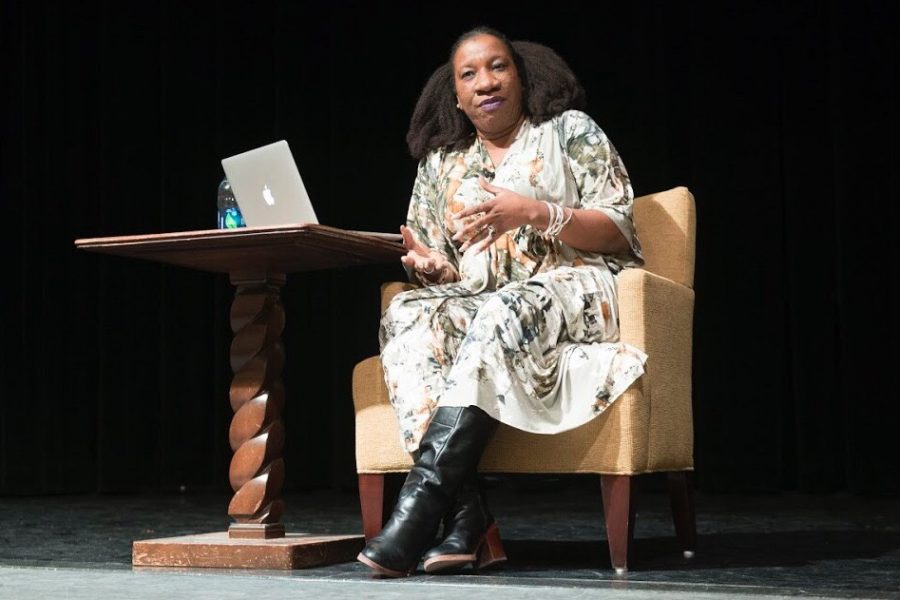A hashtag that brought national attention to the prevalence of sexual assault has been highly visible on social media and the news.
On Friday, University of Minnesota students gathered at Coffman Union to meet the person behind the #MeToo movement.
Students and other members of the public filled Coffman’s Great Hall to hear #MeToo founder Tarana Burke give a presentation and answer questions. Afterward, the audience got to engage with Burke personally.
Burke sat on stage “fireside-style” and spoke about her roots and the beginning of the #MeToo movement.
“I think that every great movement in the history of our country has been, the needle has moved because of the movement of young people,” Burke said in an interview. ”It’s really important to me that young people, who have largely been left out of the #MeToo conversation nationally, are taking the banner.”
Burke spoke about how her experience as a youth activist led to future success. She also commented on high-profile cases of sexual assault in Minnesota.
She talked about the University of Minnesota’s handling of campus sexual assault cases, like the recent accusations against men’s basketball player Reggie Lynch and those made against members of the Gophers football team in 2016.
University administration’s response was “ahead of the curve” in comparison to other schools, Burke said, but there was room for improvement.
“The reaction of how the school responds should be in tandem with how it prioritizes safety for the student body. If you prioritize safety as a premium, as a top thing, then your response should reflect that,” Burke said.
Media coverage of Garrison Keillor and former Sen. Al Franken’s alleged sexual misconduct was mishandled, Burke said in an interview, as perpetrators were given more attention than the victims.
“There’s little stories about how these women are doing, what resource do they need and who is supporting them. These questions don’t get asked,” she said.
Burke said she hopes the traditional narrative of sexual violence will expand to include communities that often go unrecognized.
“I’d love to see more reporting on people of color, and more reporting on trans and queer people, and disabled people and native folk who really experience the highest rates of sexual violence,” she said.
The inspiration to bring Burke to campus came from student requests, said Logan Sweeney, campus event chairwoman and University junior.
“We were looking for someone students could show interest in. A lot of students … have talked to us about directing attentions toward sexual assault prevention … it was really all luck that got us Tarana Burke,” Sweeney said.
Students have remarked that the school often brings in comedy acts and other entertainment, Sweeney said, but more serious discussions should also be encouraged.
Katie Eichele, director of the Aurora Center, noted how students she’s worked with have been affected by the campaign.
“A lot of the students who come to my office are a part of the #MeToo movement. Gender-based violence can be very isolating … the #MeToo movement puts a collective voice on the many experiences that people have to endure,” Eichele said.








